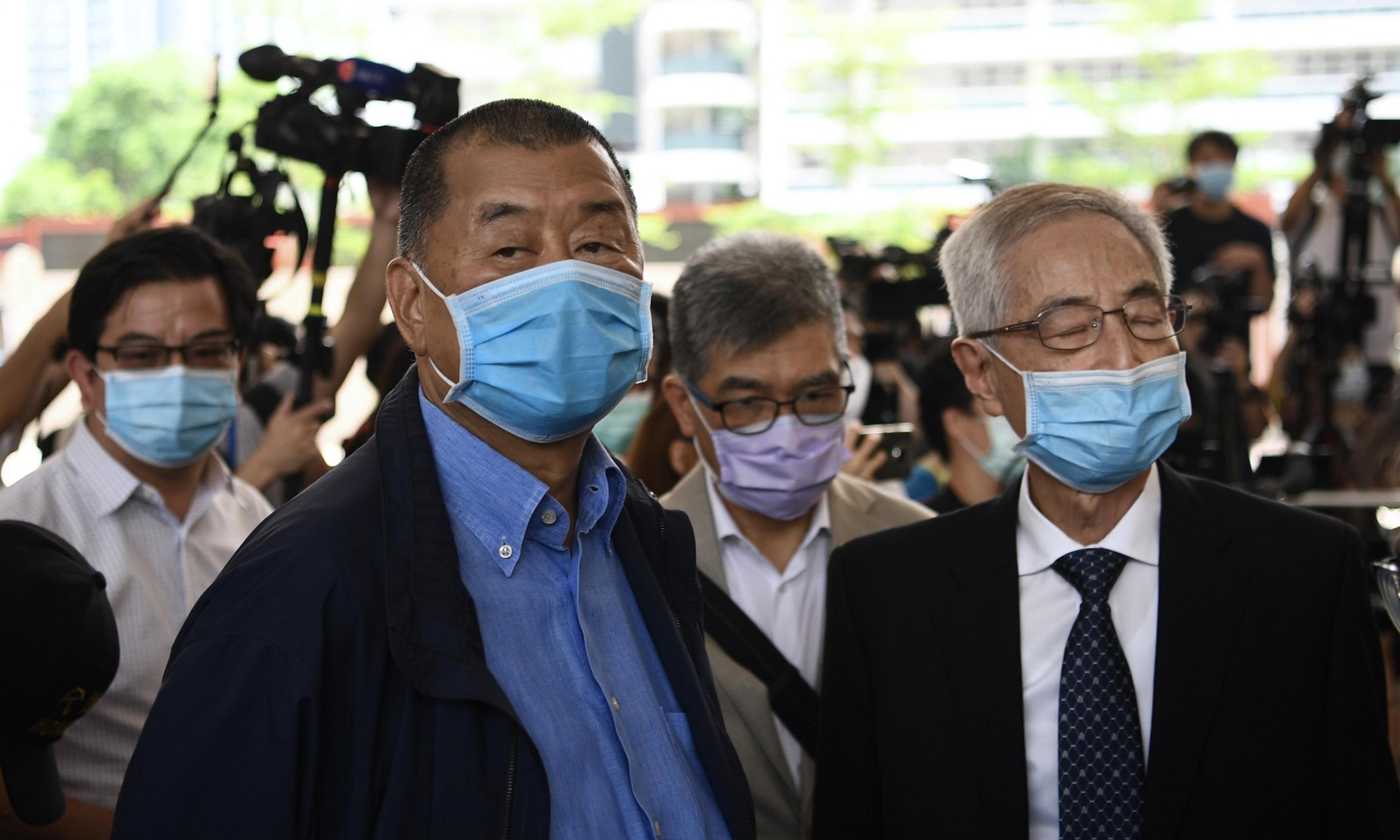
Jimmy Lai. Photo: VCG
The Hong Kong Court of Final Appeal revoked the bail order of Jimmy Lai, Apple Daily founder and a notorious anti-government figure, on Thursday, ending his short eight-day bail period as his case concerning the violation of the national security law for Hong Kong has been processing.
Both legal experts from the Chinese mainland and Hong Kong considered the latest court's decision as a "cheerful and wise move" which shows that the bail clause for the National Security Law for Hong Kong and the initial intention of the legislation have been fully respected. It also shows that Hong Kong common law can't override the national security law for Hong Kong.
Lai was formally charged under the national security law for Hong Kong on December 11, which is widely seen as a high-profile case as the 72-year-old has been considered a "modern-day traitor" for his notorious acts and deeds in instigating one of the most violent and chaotic riots in the city in 2019.
He was granted a bail on December 23 by the Hong Kong High Court, which sparked outrage among the public. Major Chinese news outlets such as the Xinhua News Agency and the People's Daily slammed the court's bail ruling by calling it "undermining the authority of the national security law for Hong Kong" and "hurting the city's rule of law."
Hong Kong's court of final appeal decided to send Lai back to detention on Thursday after hearing an appeal by the Department of Justice of Hong Kong against the bail order of Lai.
The judges of the court of final appeal considered that the high court's judges who agreed on the bail condition for Lai might have misinterpreted Article 42 of the National Security Law for Hong Kong and believed that the high court's interpretation of relevant clauses under the Basic Law, the Hong Kong Bill of Rights Ordinance, and the Criminal Procedure Ordinance, is disputable, according to local media site hk.on.cc.
In the next hearing, the judges will decide whether the high court's judges made mistakes interpreting Article 42 of the National Security Law for Hong Kong.
A lawyer representing the Department of Justice emphasized that national security is relevant to public interests and that no one should bear any consequences of suspects' repeated offenses or absconding, local media reported on Thursday. As a result, the bail threshold of the national security law for Hong Kong should have been higher.
Lawrence Ma, barrister and chairman of the Hong Kong Legal Exchange Foundation, told the Global Times Thursday that it is correct for the Justice's representative to point out that Jimmy Lai's violation of the National Security Law for Hong Kong is serious and the maximum penalty may be life imprisonment. Such national security offences are akin to or its seriousness equivalent to a suspected murder case and it is unaccustomed to granting bail to a suspected murder offender.
He noted that before the National Security Law for Hong Kong was enacted, the Hong Kong statute had the regulations on the offence of treason, mutiny and seditious intention but hardly anyone had been charged and released on bail pending trial.
He said the Hong Kong Court of Final Appeal has very little experience in dealing with national security offences since 1997, so its judges might not comprehend the gravity or seriousness of national security matters as there has been no precedent to guide them.
"But it has the wisdom today to appreciate the seriousness of national security matters which is in my view very correct," Ma said.
Tian Feilong, an associate professor at Beihang University in Beijing and a member of the Beijing-based Chinese Association of Hong Kong and Macao Studies, told the Global Times Thursday the court's decision to review the bail decision later meets the legislative intent of the National Security Law for Hong Kong.
Tian noted Thursday's hearing dealt with the right of jurisdiction of the top court over appeals arising from bail applications, while the legality of the decision to grant bail remained unattended.
Tian urged the Court of Final Appeal to rectify the bail decision made by the high court which deviated from the initial intention of the National Security Law for Hong Kong and was an abuse of the court's right to grant bail.
"A judiciary precedent and criteria for imprudent bail under the National Security Law for Hong Kong should be set," Tian said.
The next hearing for the case would be on February 1, 2021 while Lai will remain in custody until then, according to the court's decision on Thursday.




